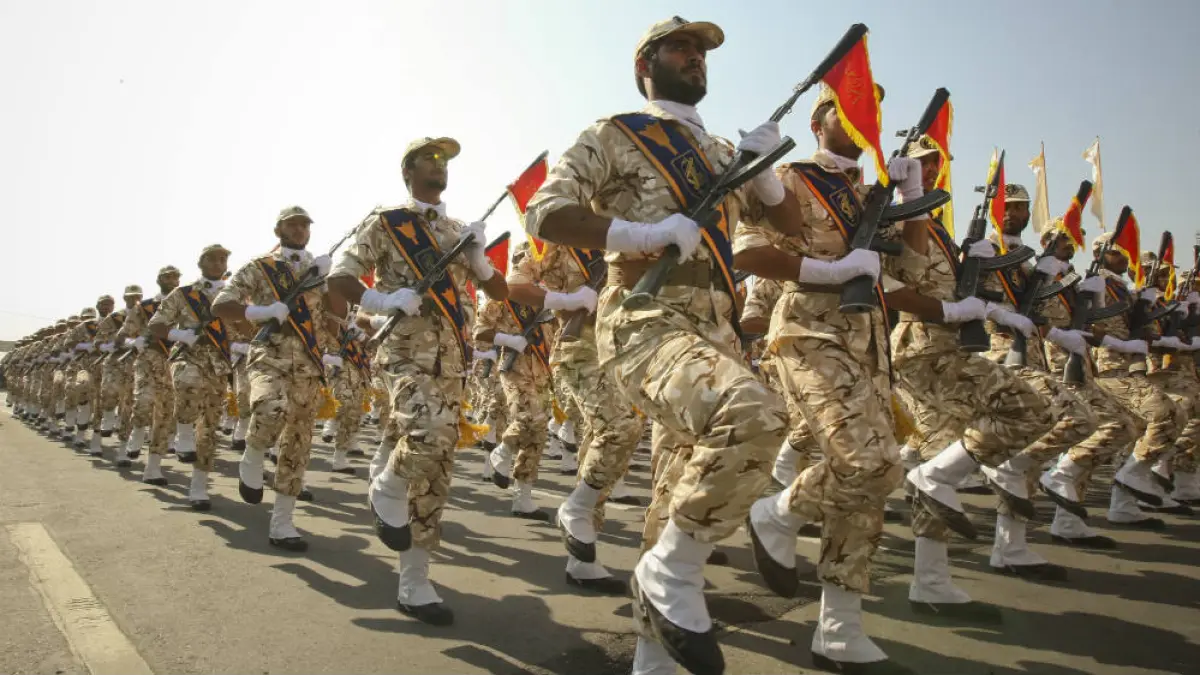France says will support EU designation of Iran’s IRGC as ‘terrorist’ group | European Union News
Foreign minister announces apparent reversal of France’s stance, saying Iran protest crackdown ‘cannot go unanswered’.
France has said it supports the European Union’s push to designate Iran’s Islamic Revolutionary Guard Corps (IRGC) as a “terrorist organisation”, reversing earlier opposition to the move.
In a statement shared on social media on Wednesday, French Foreign Minister Jean-Noel Barrot appeared to link the planned designation to the Iranian authorities’ recent crackdown on antigovernment protests across the country.
Recommended Stories
list of 3 itemsend of list
“The unbearable repression of the Iranian people’s peaceful uprising cannot go unanswered. Their extraordinary courage in the face of the violence that has been unleashed upon them cannot be in vain,” Barrot wrote on X.
“With our European partners, we will take action tomorrow in Brussels against those responsible for these atrocities. They will be banned from European territory and their assets will be frozen,” he said.
“France will support the designation of the Islamic Revolutionary Guard Corps on the European list of terrorist organisations.”
EU foreign ministers are meeting on Thursday in Brussels, where they are expected to sign off on the new sanctions against the IRGC.
The move, being led by Italy, is likely to be approved politically, although it needs unanimity among the bloc’s 27 member-states.
Established after the 1979 Islamic Revolution in Iran, the IRGC is a branch of the country’s military that answers directly to Supreme Leader Ayatollah Ali Khamenei.
It oversees the Iranian missile and nuclear programmes and plays a central role in Iran’s defence as well as its foreign operations and influence in the wider region.
While some EU member countries have previously pushed for the IRGC to be added to the EU’s “terrorist” list, others, led by France, have been more cautious.
They feared such a move could lead to a complete break in ties with Iran, impacting diplomatic missions, and also hurting negotiations to release European citizens held in Iranian prisons.
Paris has been especially worried about the fate of two of its citizens currently living at the embassy in Tehran after being released from prison last year.
The push by the EU to sanction the IRGC comes amid global criticism of a crackdown on a wave of demonstrations in Iran, which broke out last month in response to soaring inflation and an economic crisis.
The United States-based Human Rights Activists News Agency (HRANA) said it confirmed at least 6,221 deaths, including at least 5,858 protesters, linked to the weeks-long protest movement while it is investigating 12,904 others.
Iran’s government has put the death toll at 3,117, saying 2,427 were civilians and members of the country’s security forces and labelling the rest as “terrorists”.
Al Jazeera has been unable to independently verify these figures.
The protests also spurred renewed tensions between Iran and the US, as US President Donald Trump repeatedly threatened to launch an attack against the country in recent weeks.
Trump designated the IRGC as a “terrorist” group in 2019 during his first term in office.
Canada and Australia did the same in 2024 and in November of last year, respectively.
Iran has warned of “destructive consequences” if the EU goes ahead with plans to list the IRGC, and it summoned the Italian ambassador over Rome’s spearheading of the move.
